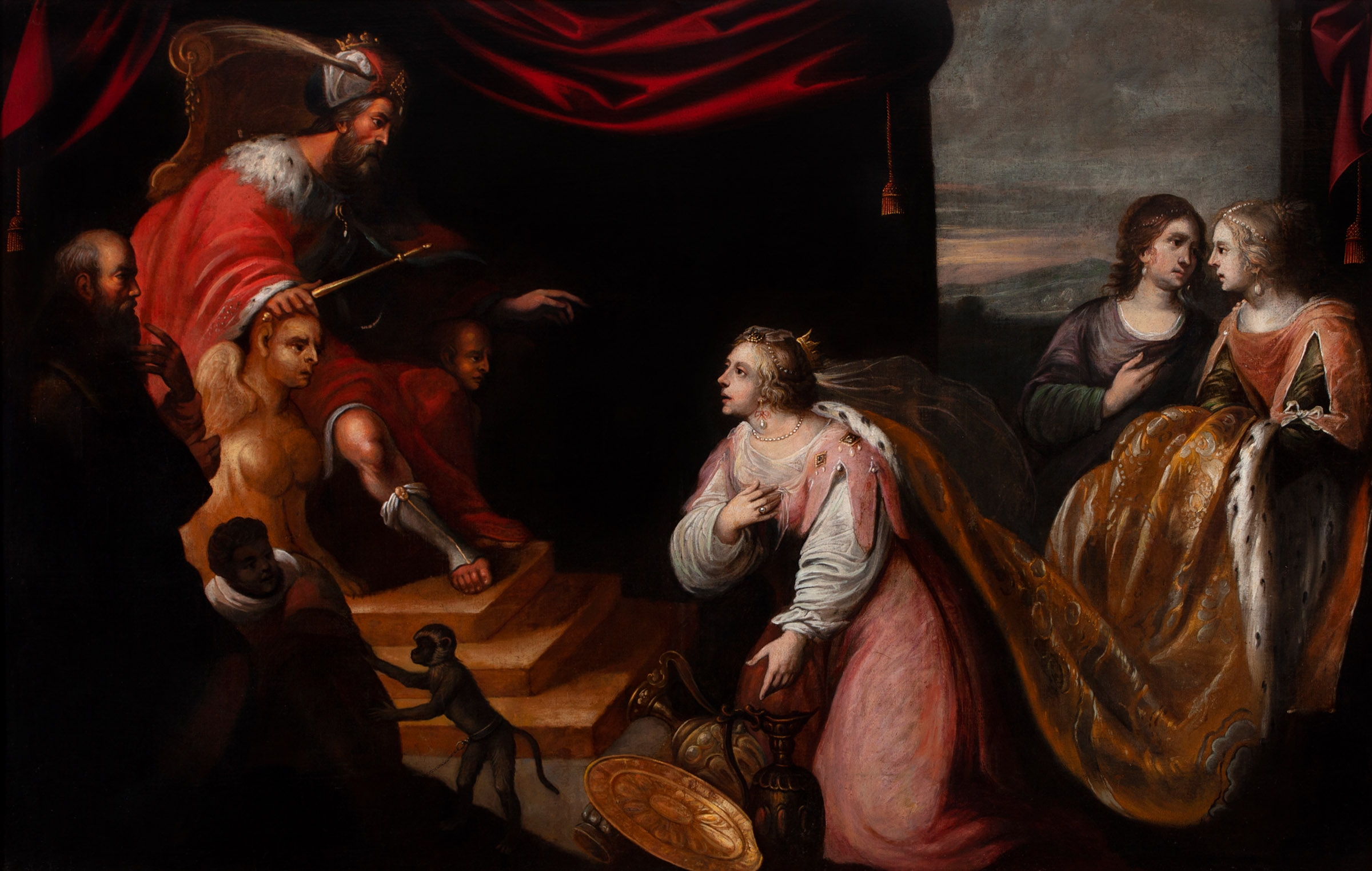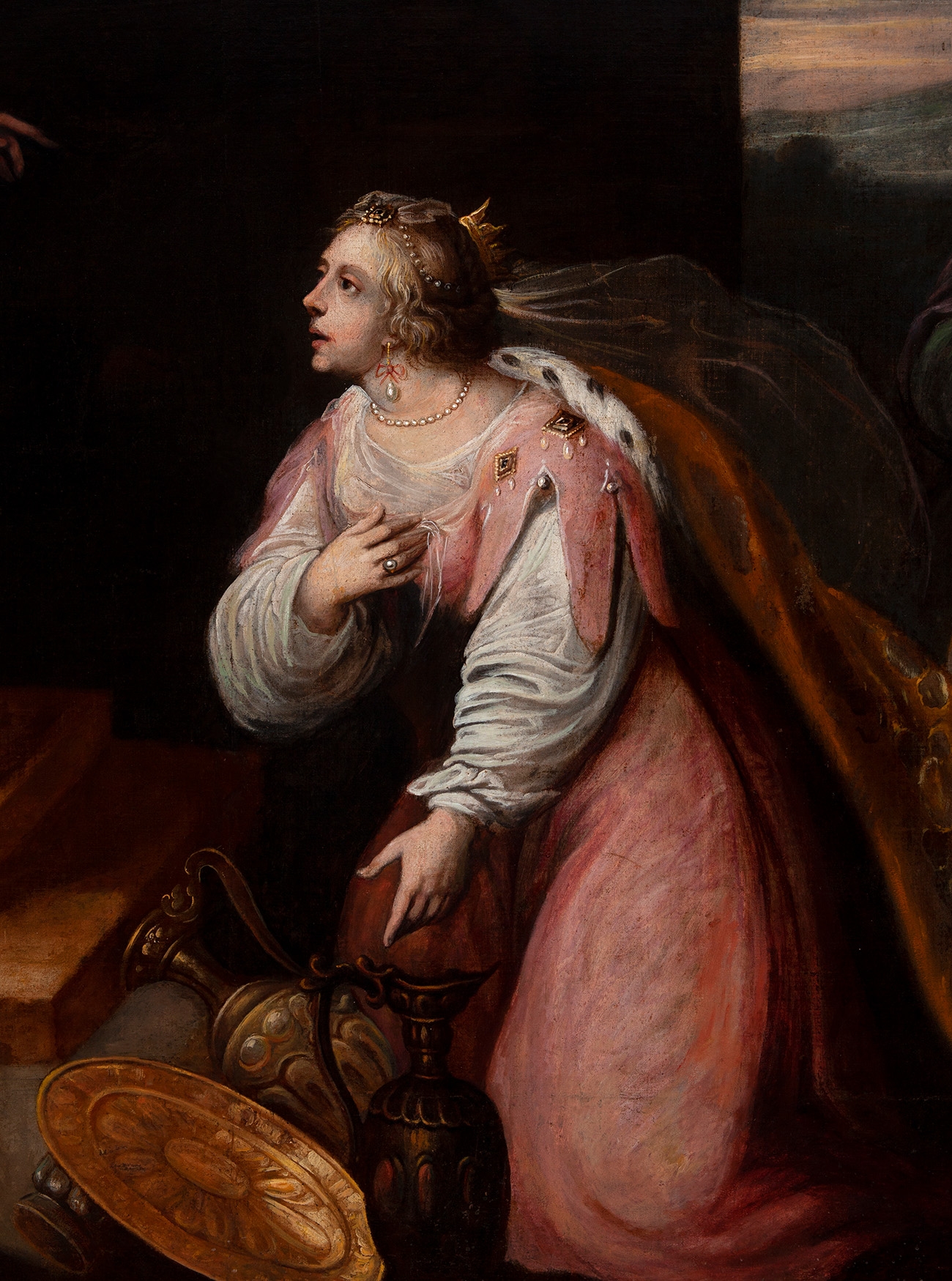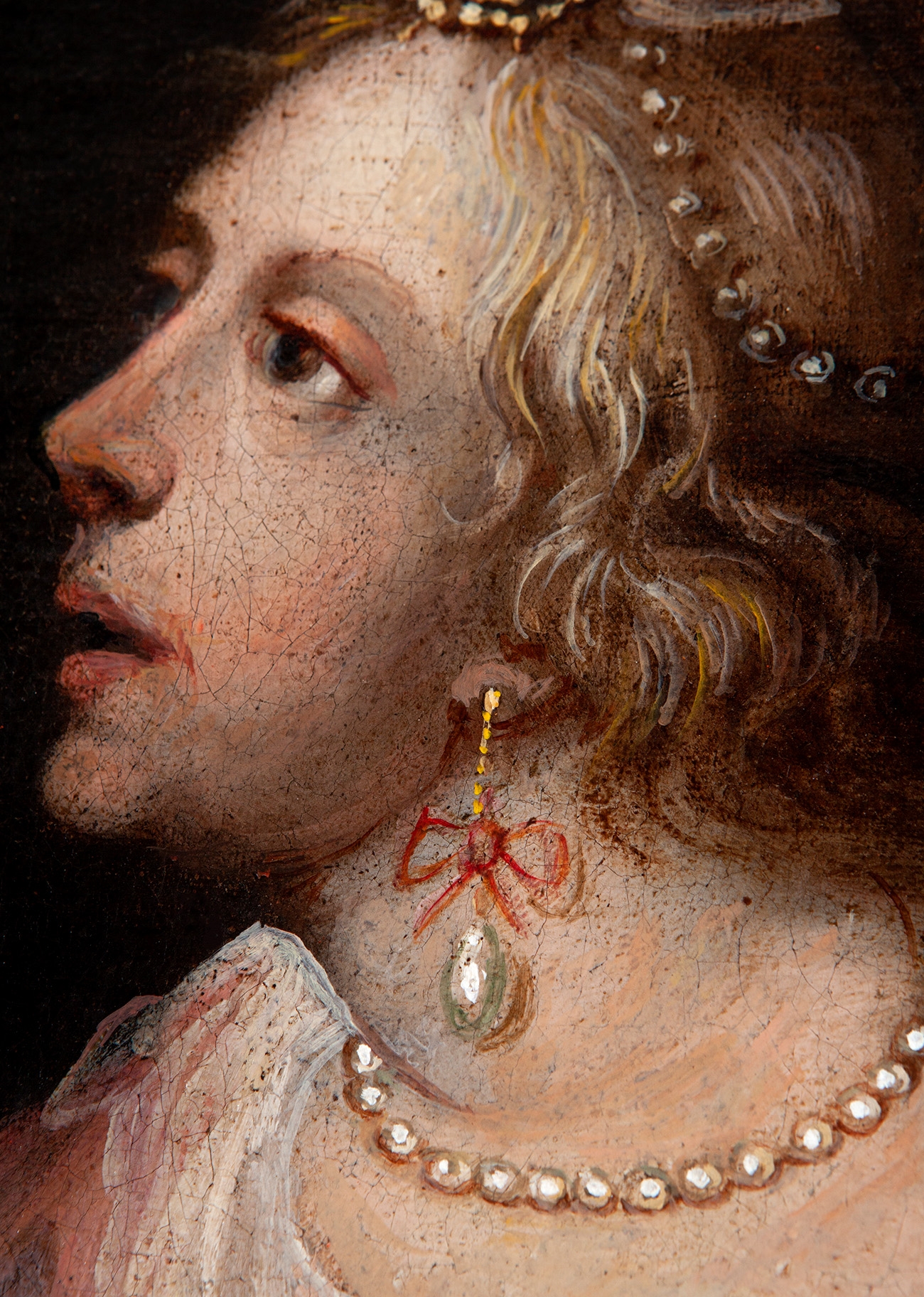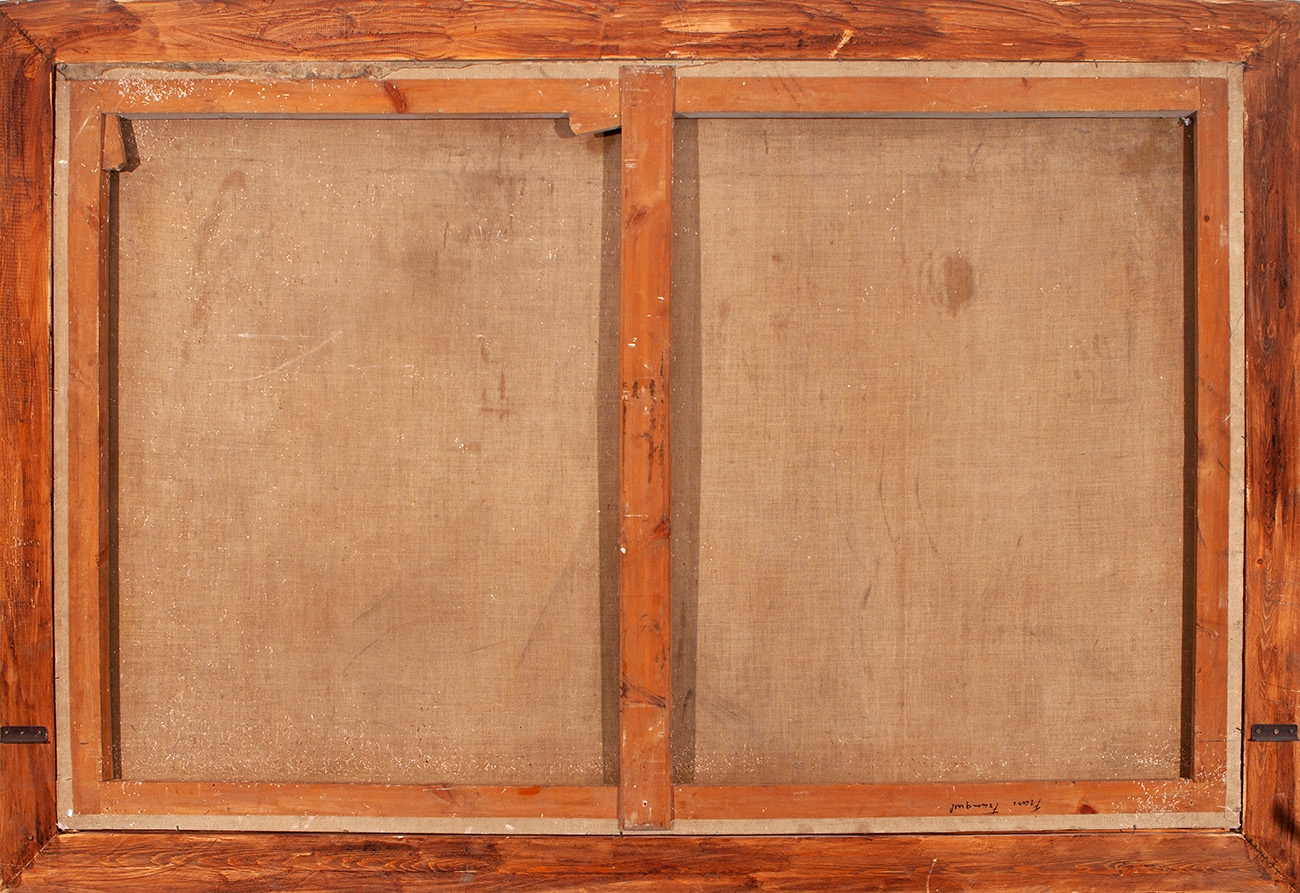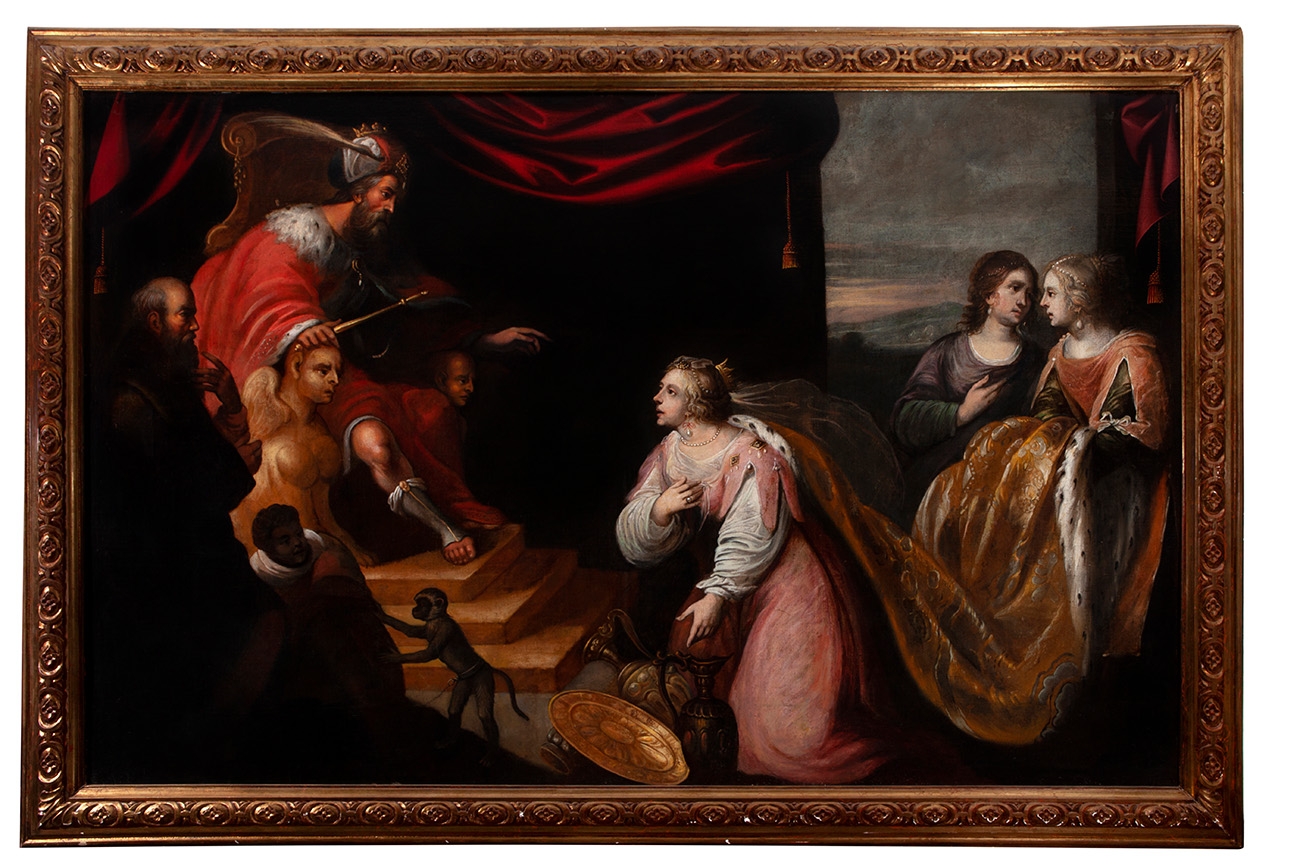Art & Antiques Bella Epoca > altaepoca
Flemish school, s.XVII.
Description
Flemish school, s.XVII.
Visit of the Queen of Sheba to Solomon.
Oil on canvas.
Redesigned.
Modern framework.
Measurements: 146 x 228 cm .; 173 x 253 cm. (Frame).
In the Flemish Baroque, the biblical theme is already devoid of any dramatic charge. The oriental themes, on the contrary, are intended to recreate a profane atmosphere: here the encounter between Makeda and Solomon appears with the excuse of capturing the exoticism of the costumes, the courtly ceremonial and the sensuality of the figures. Luxury and compositional theatricality characterize this palatial interior, which opens onto a detailed landscape background, worked in the typically Flemish way, in cold tones with a predominance of blues and greens. The pronounced naturalism in the features, the color study, the delicate flesh, the rich glazes of the queens headdress, which flies vaporously impregnating the interior with mystery ..., all this is solved with a tight, invisible brushstroke, typical of the flamenco school and its tactile preciousness. The queens long robe is picked up by her maids, wearing sumptuous brocades, which together with the jewels and settings that decorate her chest, together with the smooth mink, account for the luxury of the Near East that she embodies. He arrives in Jerusalem laden with offerings for King Solomon: we see the jars full of incense, the gold in his bronze flasks ... Solomon appears dazzled by the beauty and intelligence of Makeda. The servants absorb her in surprise, all eyes escaping to the lady, even those of the figures carved on the gold-plated throne.
Makeda, the queen of Sheba, was the ruler of the ancient kingdom of Sheba and according to the Old Testament she came to Israel because rumors of the great wisdom of King Solomon had reached her. The queen came to Jerusalem with numerous questions about religion and the worship that was rendered to the God who had flourished in the distant lands of Israel. It is the story of two rulers, a man and a woman, both founders of their nations, cherished by Christians, Jews, and Muslims. The account is in the Bible and the Koran. During his visit, Makeda asked the king about the God he worshiped. Amazed by the wisdom of the king and his God, she decided to adopt monotheism based on the figure of Yahweh for her kingdom. Around 700 B.C., when the Assyrian Empire of Iraq ruled the Middle East, trade flourished in Africa and Arabia, and not only did luxury goods and goods travel, but so did religions, ideas, and stories. The Bible tells that Queen came to Jerusalem laden with offerings for King Solomon: gold, incense and ivory tusks, also known as the great treasures of Africa.
Price
*You must be registered to see the price of this item.
 REGISTER WITH WHATSAPP
REGISTER WITH WHATSAPP* If you don't want to register, you can call us at 659 053 479 for more information.
 NATIONAL AND INTERNATIONAL SHIPPING INSURED UP TO YOUR HOME. FREE IN ANDALUCIA
NATIONAL AND INTERNATIONAL SHIPPING INSURED UP TO YOUR HOME. FREE IN ANDALUCIA 






